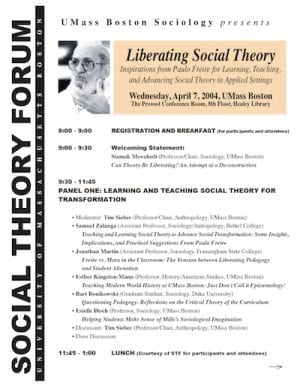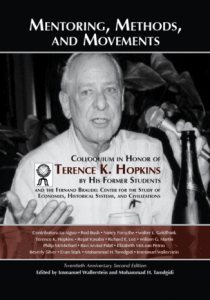Proceedings Journal Article — A Sociological Analysis of Charlotte Perkins Gilman’s Herland and With Her in Ourland — by Haley Salinas
$15.00
In writing both Herland and With Her in Ourland as fiction novels instead of straight theoretical texts, Gilman’s audience becomes vastly wider and more open to the ideas in the books. In her time fiction was much more acceptable for women to write than sociological theory or observation. Realizing this, Gilman deliberately planned the scene, plot, and characters of her works into a fictional utopian world that the reader could safely enjoy.
Description
Abstract
In writing both Herland and With Her in Ourland as fiction novels instead of straight theoretical texts, Gilman’s audience becomes vastly wider and more open to the ideas in the books. In her time fiction was much more acceptable for women to write than sociological theory or observation. Realizing this, Gilman deliberately planned the scene, plot, and characters of her works into a fictional utopian world that the reader could safely enjoy. Not only is Gilman’s use of a utopia clever, but it becomes very effective as a vehicle to transport her feminist and socialist ideas to thereader. The society that Charlotte Perkins Gilman has created in Herland is so much of a fantasy that the reader must make a considerable leap fromtheir reality. By changing, literally, all aspects of a society Gilman has made the reader aware of what exactly their society is like. Suddenly, the most mundane details, such as the usage of the phrase “he” to refer to both men and women are given attention and are cause for contemplation.
Recommended Citation
Salinas, Haley. 2004. “A Sociological Analysis of Charlotte Perkins Gilman’s Herland and With Her in Ourland.” Pp. 127-136 in Liberating Social Theory: Inspirations from Paulo Freire for Learning, Teaching, and Advancing Social Theory in Applied Settings: Proceedings of the First Annual Social Theory Forum, April 7, 2004, UMass Boston (Discourse of Sociological Practice, Vol. 6, Issues 2, Fall 2004). Issue Guest Editor: Mohammad H. Tamdgidi. Sociology Department, UMass Boston.
Read the Above Publication Online
You can read the above publication free-access online, by clicking the PDF icon below.







